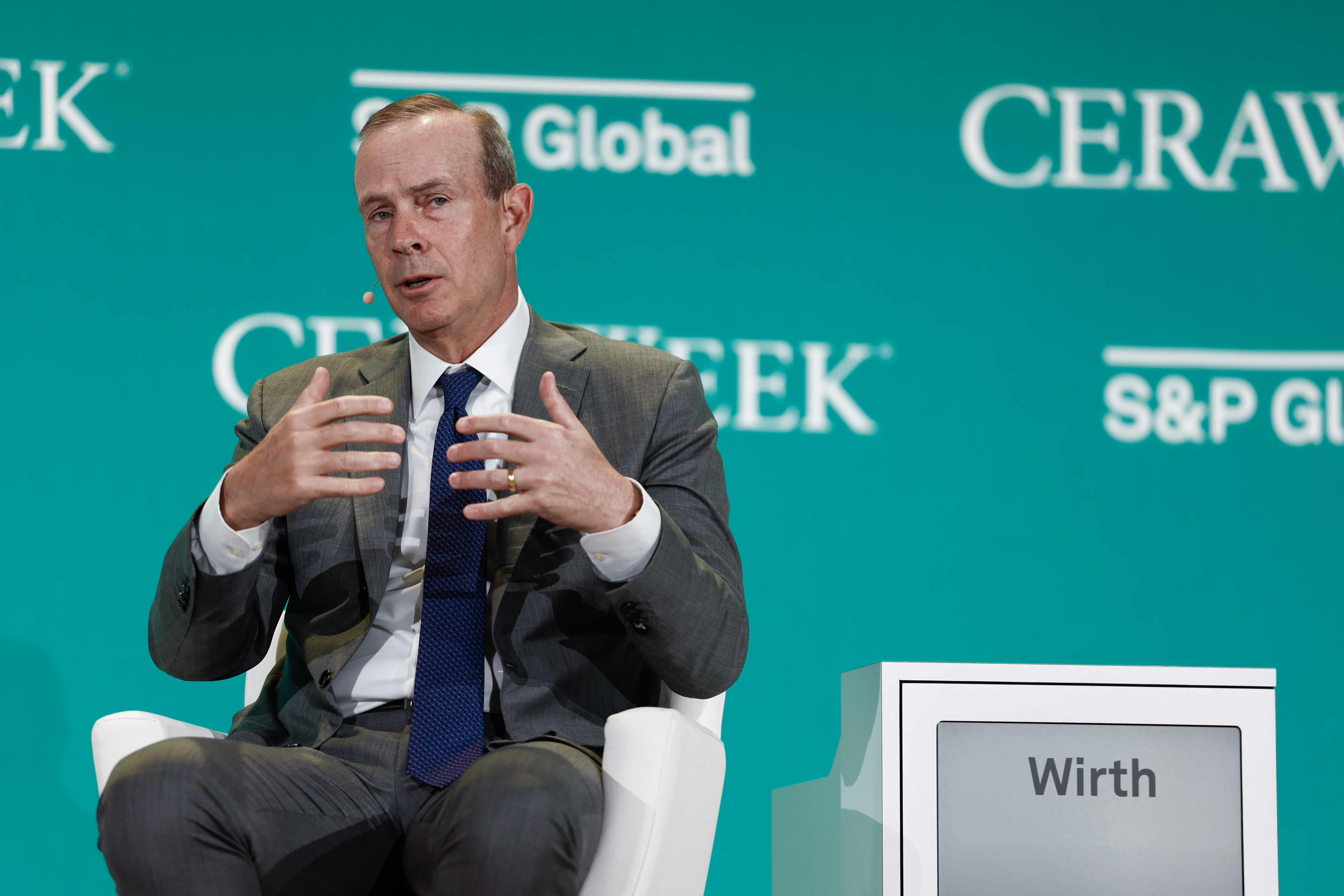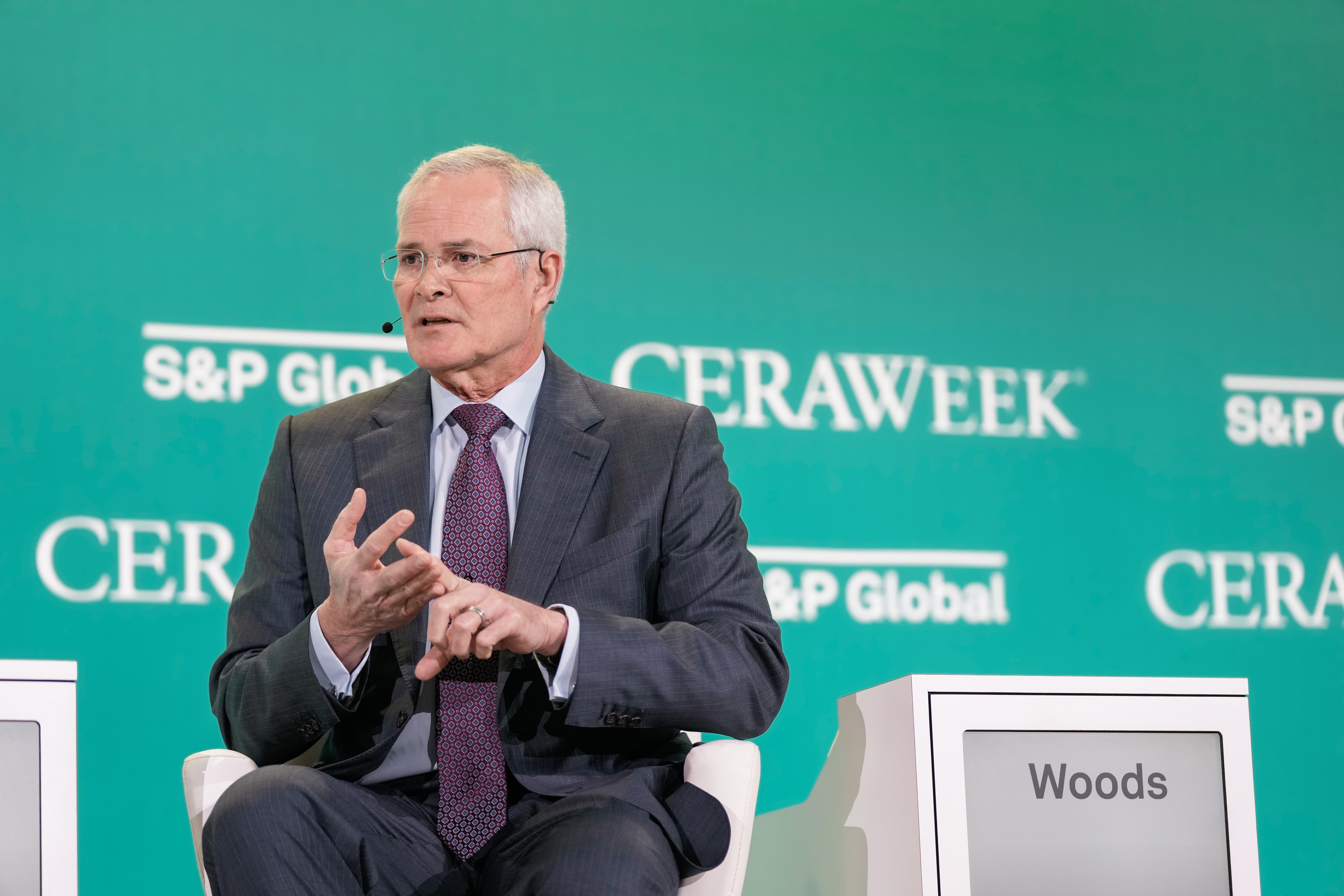
Investors voted overwhelmingly against resolutions put forward by climate and ESG activists during the Exxon and Chevron annual stockholder meetings this week. (Source: Shutterstock)
Editor’s note: This is a developing story. Check back for details.
Exxon Mobil Corp. and Chevron Corp. investors shot down a litany of climate- and ESG-focused proposals during the companies’ annual stockholder meetings.
Shareholders for the two largest U.S. oil and gas supermajors voted overwhelmingly against initiatives around greenhouse gas and methane emissions reporting, analyzing decarbonization risk and other social and governance efforts.
Just two of the 20 resolutions put forward by activist investors at Exxon and Chevron amassed more than 25% of voting shareholder support, according to preliminary vote totals published May 31.
The boards of directors at both companies had recommended investors vote against the activist proposals, according to proxy filings.

In a statement, Chevron touted its own investments in low-carbon projects and reducing greenhouse gas intensity. The company completed a $3.15 billion acquisition of Iowa-based Renewable Energy Group Inc. in 2022, which Chevron said boosted itself to the nation’s second-largest biodiesel producer.
“Our capabilities, assets and customer relationships are distinct advantages,” said Chevron Chairman and CEO Mike Wirth in the release. “We’re building on these strengths as we aim to lead in lower carbon intensity oil, products and natural gas.”
The slowdown in support for shareholder activism at major U.S. oil and gas companies is a reversal from recent years. Public companies had been seeing a surge in support for activist proposals and votes on environmental and social matters.
In a high-profile incident in 2021, activist investor group Engine No. 1 successfully managed to add three new independent directors to Exxon’s board. The little-known activist group, which held less than a 0.02% stake in Exxon, garnered voting support from institutional investors like BlackRock and Vanguard.
Smaller U.S. companies in the oil and gas industry, including Devon Energy, Kinder Morgan, Marathon Oil, EOG Resources and Coterra Energy, have seen a flurry of activist shareholder proposals this proxy season.
In a win for climate activists, over 74% of Coterra’s voting investors approved a shareholder proposal to create a report analyzing the reliability of the company’s methane disclosures.
RELATED
Oil, Gas Companies Face Shareholder Reckoning this Spring
European energy companies are facing similar demands from shareholders. Police intervened to prevent climate protestors from disrupting TotalEnergies’ annual meeting late last month as shareholders rejected a proposal aimed at slashing emissions.
Activists also interrupted annual shareholder meetings held by Shell and BP in recent weeks, according to media reports.
Sustainability vs. shareholders
The Exxon meeting showcased some of the ESG tensions among activists, investors and corporate leadership.

Exxon CEO Darren Woods spoke after each shareholder proposal was presented, recommending a no vote on each one — sometimes offering sharp disagreement.
“The proponent is an anti-oil and gas activist group using environmental, social and governance objectives to diminish the important role Exxon Mobil plays in the energy industry,” Woods said on the call after hearing a proposal to set emission reduction targets in line with the 2016 Paris Climate Agreement.
He said another proposal was “asking us to produce yet another report.” In response to another request for additional reporting about a potential oil spill, he said, “We've explained this to the proponent who continues to wrongly state that this is a safety issue. ... This proposal is unnecessary.”
Shareholder David Bahnsen, founder of The Bahnsen Group, defended the company and oil industry. He proposed Exxon produce a study about what would happen if fossil fuel production were shut down.
“Each year the company is besieged by proposals from activist groups who don't seem to like oil companies,” Bahnsen said in a recorded comment played at the meeting. “They push for politically determined phase-outs of fossil fuels or confessions from the company about all the alleged harm.”
“Defend what it is that you do every day to keep the lights on,” he said addressing Exxon leadership.
Bahnsen’s comments contrasted with McKenzie Ursch of climate advocacy group Follow This, which proposed that Exxon take on tougher emissions goals.
“Your board is determined to clinging to their carbon-based business model as long as possible because they think that's what their shareholders want,” Ursch said, urging shareholders to vote to change the board’s direction.
Nearly 90% of shareholders who cast a ballot voted against the Follow This proposal.
A proposal to produce a report on the potential effects of falling virgin plastics demand on Exxon’s business received 25% favorable votes. Virgin plastics do not use recycled materials.
A resolution urging Exxon to issue a report analyzing the reliability of its methane emissions disclosures garnered the most voting support (36.4% in favor) out of any resolution put forward by activists.
Andrew Logan, senior director of oil and gas at Ceres, a nonprofit focused on sustainability, said the repeated strikeouts at the Exxon and Chevron meetings show ESG activists will need new tactics.
“They’re hitting a limit in terms of what they can achieve through the shareholder proposal process, which is a bit of a blunt instrument,” Logan said. “To spend a year filing and defending these proposals and then have the votes be as low as they were is clearly a sign that something has to change.”
Future proposals should be smaller in number, more focused and easier for the ordinary rank-and-file investors to understand, Logan said.
Logan added, however, that there are still signs of the ESG movement’s success. Companies, once dismissive of ESG proposals, are now giving substantive responses. Exxon now has emissions targets and hires more executives from outside the company, though Logan said his organization heard Exxon was calling investors in advance to shore up votes against the proposals.
Recommended Reading
CNOOC Finds Light Crude at Kaiping South Field
2024-03-07 - The deepwater Kaiping South Field in the South China Sea holds at least 100 MMtons of oil equivalent.
CEO: Continental Adds Midland Basin Acreage, Explores Woodford, Barnett
2024-04-11 - Continental Resources is adding leases in Midland and Ector counties, Texas, as the private E&P hunts for drilling locations to explore. Continental is also testing deeper Barnett and Woodford intervals across its Permian footprint, CEO Doug Lawler said in an exclusive interview.
Vår Energi Hits Oil with Ringhorne North
2024-04-17 - Vår Energi’s North Sea discovery de-risks drilling prospects in the area and could be tied back to Balder area infrastructure.
CNOOC Makes 100 MMton Oilfield Discovery in Bohai Sea
2024-03-18 - CNOOC said the Qinhuangdao 27-3 oilfield has been tested to produce approximately 742 bbl/d of oil from a single well.
US Gas Rig Count Falls to Lowest Since January 2022
2024-03-22 - The combined oil and gas rig count, an early indicator of future output, fell by five to 624 in the week to March 22.




